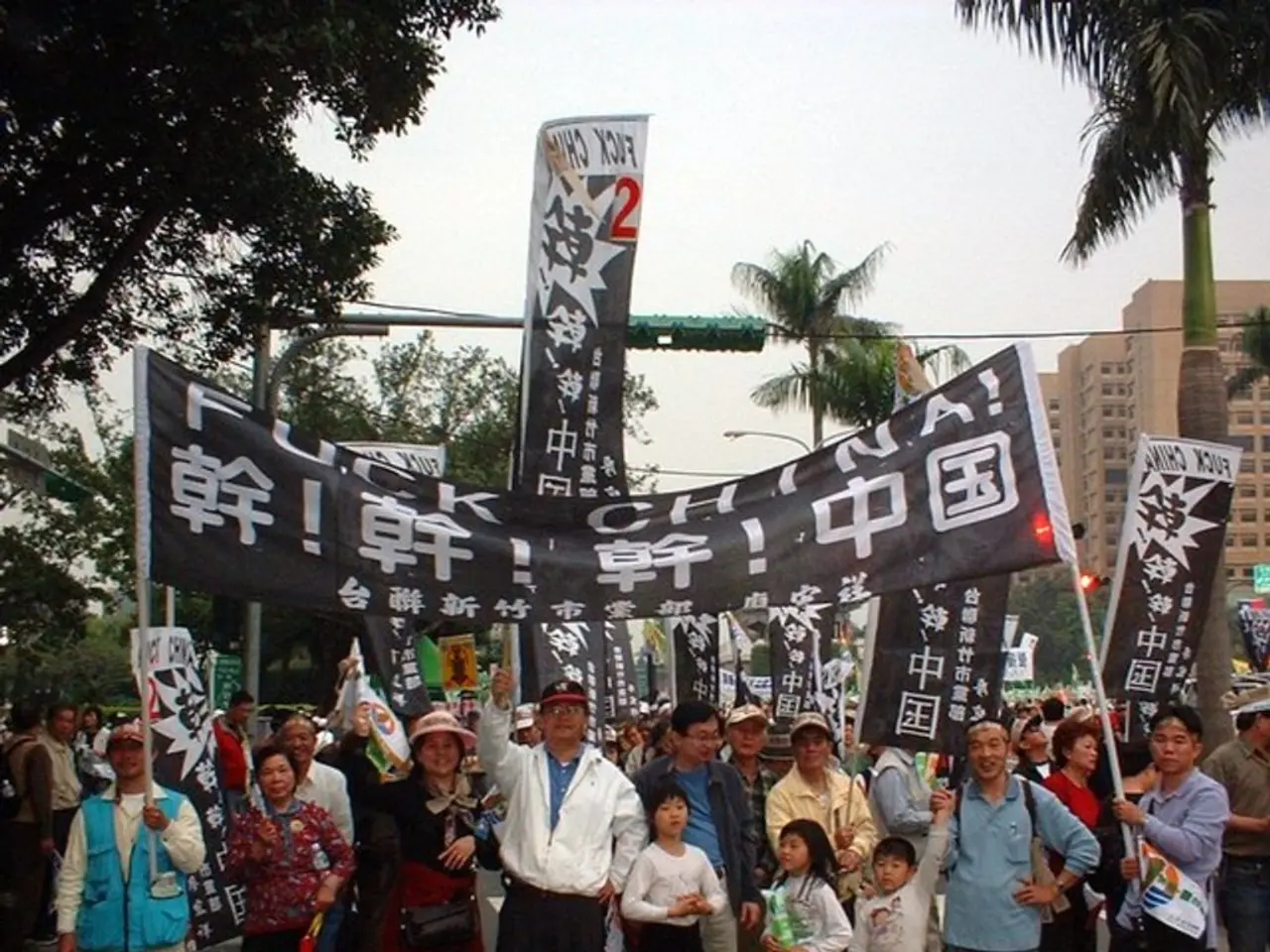United Kingdom braces for further legal disputes concerning accommodation facilities for migrants
In the picturesque market town of Epping, a contentious issue has arisen over the accommodation of asylum seekers in the Bell Hotel. The town's local council, Epping Forest District Council, has argued that the hotel has become a risk to public safety and has breached planning laws, as it is no longer operating as a hotel in the traditional sense.
Under a 1999 law, the interior ministry is required to provide accommodation and subsistence support to all destitute asylum seekers while their claims are being decided. As of the end of March, there were 32,345 asylum seekers being housed temporarily in UK hotels, a 15% decrease from the end of December. The current situation in Epping has sparked a heated debate, with some residents welcoming the imminent removal of asylum seekers, while others express concern over their future housing.
Carol Jones, a 64-year-old retiree, expressed relief at the decision but questioned its implementation and the future housing of the asylum seekers. Meanwhile, Enver Solomon, chief executive of Refugee Council, urged the government to partner with local councils to provide safe, cost-effective accommodation within communities, rather than using hotels.
The situation took a turn when Hadush Gerberslasie Kebatu, 41, was charged in mid-July, which sparked the protests outside the Bell Hotel. Several men appeared in court on Monday charged with violent disorder over the Bell Hotel protests. The security minister, Dan Jarvis, said the government is considering challenging the high court judge's decision to grant a temporary injunction to stop migrants from staying at the Bell Hotel.
The local authorities in Epping have announced they will explore their options regarding court rulings about housing refugees in hotels, following High Court Judge Stephen Eyre issuing a temporary order preventing refugees from staying at the Bell Hotel. The Epping town administration argued that continued accommodation in that hotel posed a "clear risk of escalating social tensions," leading the court to order the Bell Hotel to be vacated by September 12, 2025.
The controversy has not been limited to Epping. More than 50,000 people have made the dangerous crossing from northern France since Starmer became UK leader last July. This influx has led to further anti-immigration demonstrations spreading to London and around England. Nigel Farage, leader of the Reform UK party, has indicated that councils run by his party will pursue similar claims and call for protests outside migrant hotels.
Labour has pledged to end the use of hotels for asylum seekers before the next election, which is likely in 2029, in an attempt to save billions of pounds. However, the current situation in Epping highlights the complexities and challenges associated with accommodating asylum seekers in the UK. The issue continues to divide communities and test the government's approach to managing immigration and asylum seekers.
Read also:
- United States tariffs pose a threat to India, necessitating the recruitment of adept negotiators or strategists, similar to those who had influenced Trump's decisions.
- Weekly happenings in the German Federal Parliament (Bundestag)
- Southwest region's most popular posts, accompanied by an inquiry:
- Discussion between Putin and Trump in Alaska could potentially overshadow Ukraine's concerns








